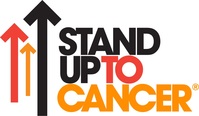The Multidisciplinary Teams From Chicago, Dallas, Los Angeles and Philadelphia Will Aim To Remove Barriers to Cancer Clinical Trial Participation, With a Focus on Medically Underserved Communities
LOS ANGELES, Feb. 8, 2023 /PRNewswire/ — Stand Up To Cancer® (SU2C) today announced four teams focused on increasing diversity in early phase cancer clinical trials. Supported by a sponsorship from the Janssen Pharmaceutical Companies of Johnson & Johnson, the teams will address an imperative need in the cancer research arena by creating unique and replicable approaches that engage medically underserved communities in Phase 1 and Phase 2 cancer clinical trials. The teams’ goals include addressing cancer disparities and facilitating the development of new treatments that have the potential to benefit the patients who will use them.
Through the Diversity in Early Development Clinical Trials Program, which is a part of SU2C’s Health Equity Initiative, research teams from Chicago, Dallas, Los Angeles and Philadelphia will bring together key stakeholders who are deeply connected to communities that are underrepresented in cancer clinical trials. By integrating social and behavioral determinants of health, community engagement and outreach, and cancer biology, prevention and treatment, the teams will address each of their local region’s needs while sharing lessons learned to ensure the broadest impact. SU2C will provide each team dedicated support for community awareness and outreach to engage specific communities and the public in this critical effort.
A community engagement grant program is now accepting applications to support and complement the teams’ work. SU2C will provide two-year grants ranging from $50,000 – $100,000 to organizations within the teams’ regions to develop new or implement existing community programs that focus on diverse cancer clinical trial recruitment.
“In the United States, cancer clinical trial participation remains significantly lower for people of diverse race and ethnicity, and for people in medically underserved communities. The lack of diverse involvement in therapy development makes it challenging for the health care industry to provide evidence-based treatments for all cancer patients,” said Russell Chew, president and CEO of Stand Up To Cancer. “We are grateful to collaborate with Janssen on this vital effort, with the shared goal of achieving equity for everyone impacted by cancer.”
According to 2020 data from the U.S. Food and Drug Administration, 73% of cancer trial participants are white, 14% are Asian, 6% are Hispanic and 5% are Black. Disparities in clinical trial participation means that many Americans from diverse groups may be less likely to benefit from new cancer treatments and the promise of precision medicine.
“Our goal in sponsoring Stand Up to Cancer is to enable innovative research teams to develop initiatives at the community level that have a measurable impact on enhancing access to and engagement in cancer clinical trials,” said Jeffrey Infante, M.D., global head, Oncology Early Clinical Development and Translational Research, Janssen Research & Development, LLC. “We look forward to seeing the results of these programs so that we can continue to help improve health equity and develop therapies and clinical programs that benefit patients with cancer.”
Janssen Research & Development, LLC, had input into the selection criteria and how the grant funds are being used, and SU2C had the final vote in the selection of the grantees. The four Diversity in Early Development Clinical Trials Research Teams will work independently on the following studies while also sharing strategies and learnings across their efforts.
- Accelerating and Diversifying Access to Clinical Trials: This team from Fox Chase Cancer Center will focus on accelerating and diversifying access to clinical trials. Their approach to improve access to early phase clinical trials, specifically in the predominantly underserved North Philadelphia community, includes three main goals: develop infrastructure and personnel to extend early phase clinical trials; provide extensive patient support and services for early phase clinical trial participants; and leverage community and patient engagement to increase education while integrating existing services to support clinical trial participation. This team, led by Martin Edelman, MD, and co-led by Linda Fleisher, PhD, MPH, anticipates a 20% increase in accrual to early phase cancer clinical trials as a result of this program, resulting in a positive influence on the overall quality and delivery of care.
- Eliminating Enrollment Barriers to Early Phase Trials in a Diverse Population in Los Angeles County: This team from the University of Southern California Norris Comprehensive Cancer Center (USC Norris) will focus on several tactics to improve diverse recruitment for early phase cancer clinical trials: engage oncology care providers in a safety net hospital system to identify the referral barriers that currently exist; implement a series of interventions to address system barriers as well as those faced by patients and providers and evaluate the impact of these interventions on recruitment; explore the feasibility of remote clinical trials in communities where time and distance from accessible care and transportation to appointments are the key barriers; and examine the collected information and apply processes such as increasing targeted communication between providers and patients, and promoting trial awareness through community engagement events, in outpatient clinics and on social media platforms. Led by Anthony El-Khoueiry, MD, associate director for clinical research at USC Norris, and co-led by Chanita Hughes Halbert, PhD, associate director for cancer equity at USC Norris, the transdisciplinary team’s goal is to improve the clinical trial recruitment process at the patient level, the provider level and the overall system level.
- Enhancing Diversity in Early Phase Clinical Trials in an Urban Underserved Community: This team from the University of Chicago will focus on enhancing diversity in early phase clinical trials in an urban underserved community, namely Chicago’s Southside and a community hospital within the health system that serves a predominantly Black patient base. The team’s randomized trial will determine if employing new methods of patient outreach, with or without engagement of a community ambassador, enhances clinical trial enrollment above and beyond outreach to the treating physician alone. Led by Walter Stadler, MD, and co-led by Briseis Aschebrook-Kilfoy, PhD, the team will identify potential trial patients through a method utilizing the electronic health record, and then inform the treating physician of possible trial eligibility prior to the patient’s visit. Patients in various outreach groups will receive a variety of digital communications such as electronic health record messaging, email and text messaging informing them about clinical trials and the trial process before and after their physician visit. Physicians for these patients will also receive training on culturally appropriate communication. Certain patients participating in the study will additionally be given the opportunity to connect with community ambassadors from established community-based organizations already working with the team. The goal of the study is to identify which mix of patient outreach and communication works best, build upon established community relationships, and triple diverse participant clinical trial enrollment.
- Transferring Care to Enhance Access to Early-phase Cancer Clinical Trials: This team from UT Southwestern Medical Center’s Harold C. Simmons Comprehensive Cancer Center will implement a program to screen and recruit patients from a safety-net medical system, then enroll them in early phase cancer clinical trials at a university-based National Cancer Institute-designated cancer center. The team, led by David Gerber, MD, and co-led by Chika Nwachukwu, MD, PhD, aims to promote diverse and equitable access to early phase cancer clinical trials for patients from the Dallas area, which is critical to informing the development of new cancer therapies. Dr. David Gerber currently serves on an advisory board for Janssen.
About Stand Up To Cancer
Stand Up To Cancer® (SU2C) raises funds to accelerate the pace of research to get new therapies to patients quickly and save lives now. SU2C, a division of the Entertainment Industry Foundation, a 501(c)(3) charitable organization, was established in 2008 by media and entertainment leaders who utilize these communities’ resources to engage the public in supporting a new, collaborative model of cancer research, to increase awareness about cancer prevention, and to highlight progress being made in the fight against the disease. As of July 2022, more than 3,000 scientists representing more than 210 institutions are involved in SU2C-funded research projects.
Under the direction of our Scientific Advisory Committee, led by Nobel laureate Phillip A. Sharp, PhD, SU2C conducts rigorous competitive review processes to identify the best research proposals to recommend for funding, oversee grants administration, and ensure collaboration across research programs.
Current members of the SU2C Founders and Advisors Committee (FAC) include Katie Couric, Sherry Lansing, Kathleen Lobb, Lisa Paulsen, Rusty Robertson, Sue Schwartz, Pamela Oas Williams, and Ellen Ziffren. The late Laura Ziskin and the late Noreen Fraser are also co-founders. Russell Chew serves as SU2C’s president and CEO.
For more information, visit StandUpToCancer.org, Instagram, TikTok, Twitter, Facebook, and YouTube.
SOURCE Stand Up To Cancer

Originally published at https://www.prnewswire.com/news-releases/stand-up-to-cancer-announces-four-teams-focused-on-diversity-in-early-phase-cancer-clinical-trials-301741542.html
Images courtesy of https://pixabay.com



